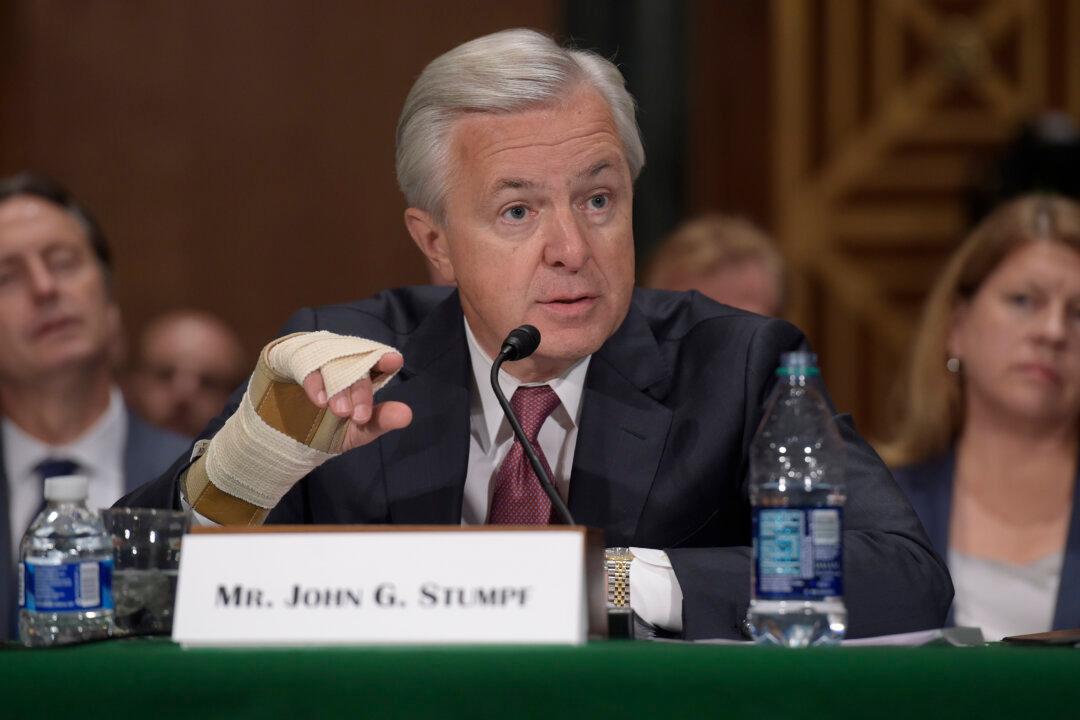A U.S. regulator on Thursday banned former Wells Fargo’s CEO John Stumpf from working in the banking industry and forced Stumpf to pay a $17.5 million fine over his role in the bank’s fake-accounts scandal.
Stumpf and seven other of the firm’s former executives were charged by the U.S. Office of the Comptroller of the Currency (OCC), with total civil penalties of $58 million, in connection to what the regulator described as “the bank’s systemic sales practices misconduct.”





